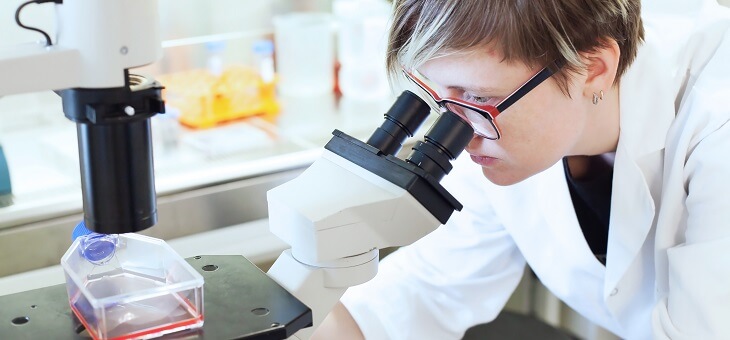There’s been a breakthrough for sufferers of rectal cancer and experts are claiming it’s a “revolutionary treatment shift”.
A study published in the New England Journal of Medicine this week reports that a new treatment put every single subject into remission in a study conducted by the Memorial Sloan Kettering Cancer Center.
The study was small, 12 patients, and involved immunotherapy, harnessing the body’s own immune system against the cancer.
One of the authors of the paper, Dr Luis A. Diaz, told The New York Times the cancer was “obliterated” in every single patient.
“I believe this is the first time this has happened in the history of cancer,” he said.
Read: Australia’s bowel screening program saved my life
The patients were all given dostarlimab, which is often used to treat endometrial cancer, every three weeks for six months.
Dostarlimab is known as a checkpoint inhibitor, in that it ‘reveals’ cancer cells to the immune system, allowing it to identify and destroy the cells.
The Memorial Sloan Kettering Cancer Center said the research was sparked by two key ideas.
The first was to figure out precisely which patients would benefit most from immunotherapy and patients with tumours with a specific genetic makeup, known as mismatch repair-deficient (MMRd), were selected.
“An MMRd tumour develops a defect in its ability to repair certain types of mutations that occur in cells. When those mutations accumulate in the tumour, they stimulate the immune system, which attacks the mutation-ridden cancer cells,” says Dr Diaz.
However, according to the cancer centre, cancer will fight back.
Immune cells contain a safeguard called a checkpoint, to prevent them from attacking normal cells. Cancer cells can trip this safeguard and shut down immune cells, allowing a tumour to hide and grow.
Read: University study links thyroid cancer to obesity
However, immunotherapy can turn the tables yet again.
An immunotherapy agent – a checkpoint inhibitor – releases the brake on an immune cell, freeing it to recognise and attack cancer cells.
The doctors reported that when the “brakes were taken off the immune cells”, they were attacked with much more force.
The report said during the six to 25-month follow-up period, no patients had undergone chemoradiotherapy or surgery and there were no instances of progression or recurrence. Patients are still being monitored.
A NEJM editorial accompanying the article said the results were “cause for great optimism”, but the trial results would not replace current treatment for some time and flagged future studies with patients with coexisting conditions, from diverse communities, different ages, different tumour size for a better understanding of the results.
However, it also said the results were “promising”.
“The patients who agreed to forgo standard treatment for a promising but unknown future with immunotherapy have provided what may be an early glimpse of a revolutionary treatment shift,” it stated.
Read: Aussie discovery provides new hope for cancer patients
How is rectal cancer different from colon cancer?
Colon cancer can start anywhere in the colon, which is about 1.5 metres long, but rectal cancer is specifically confined to the last 12 centimetres of the colon.
While it may seem they are indistinguishable, their locations make a major difference.
The colon covers the space between the bottom of your ribcage and your pelvis, but the rectum is closer to some important organs such as the bladder and uterus and its location tucked into the pelvis means it’s harder to access for surgery.
Also, if it’s caught in time, colon cancer can be relatively easily treated with a bowel resection, but rectal tumours can be trickier as rectal surgery increases your chances of needing an ostomy.
The rectum also contains the sphincter muscle that controls bowel movement. When surgically removing the tumour if it is too close to the sphincter to save it, you may end up needing a colostomy bag.
If you enjoy our content, don’t keep it to yourself. Share our free eNews with your friends and encourage them to sign up.

